Where:
How:
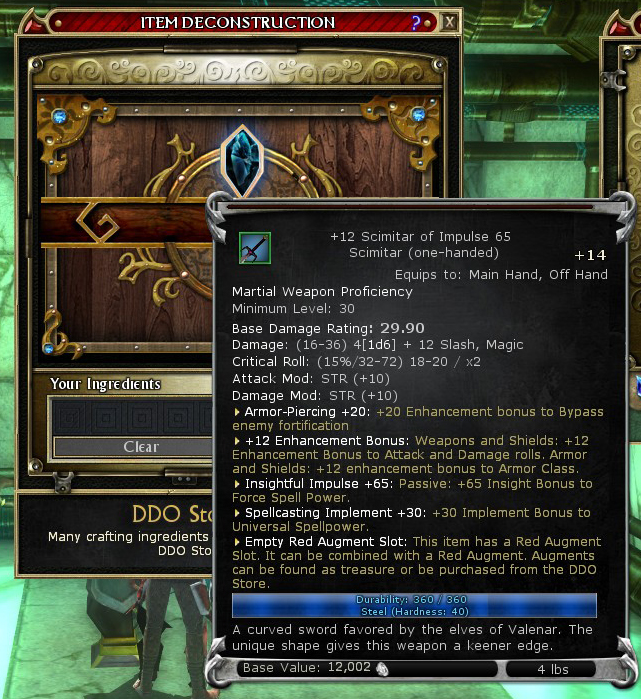
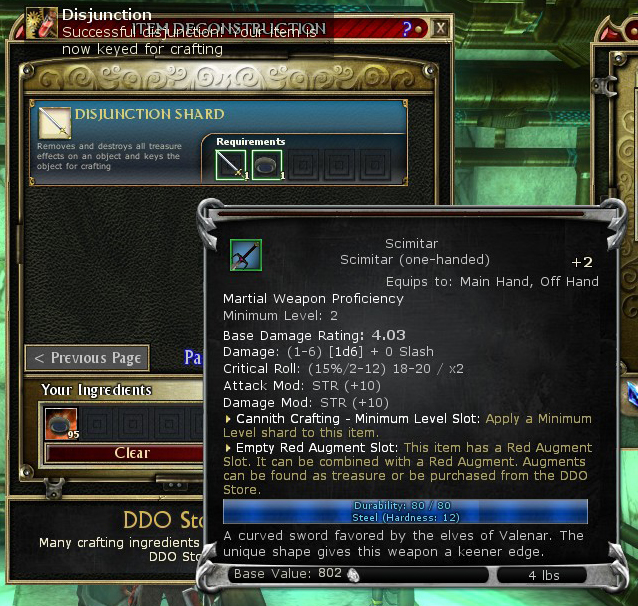
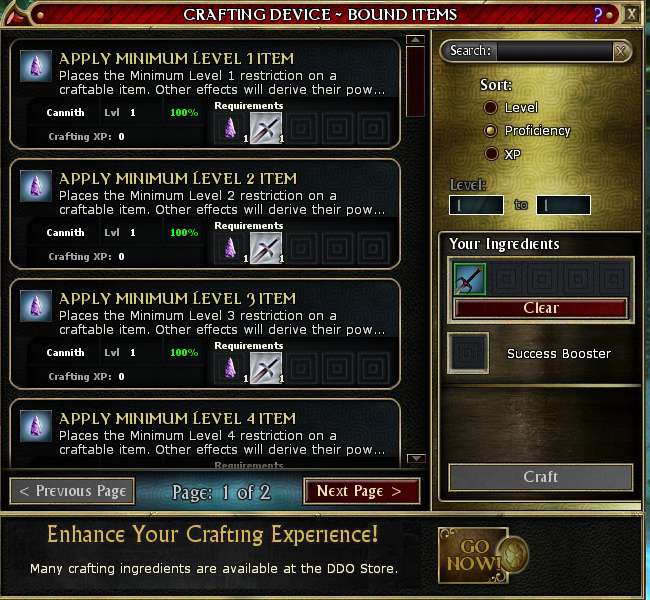
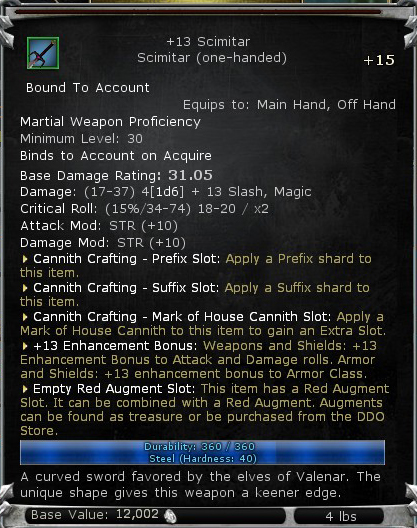
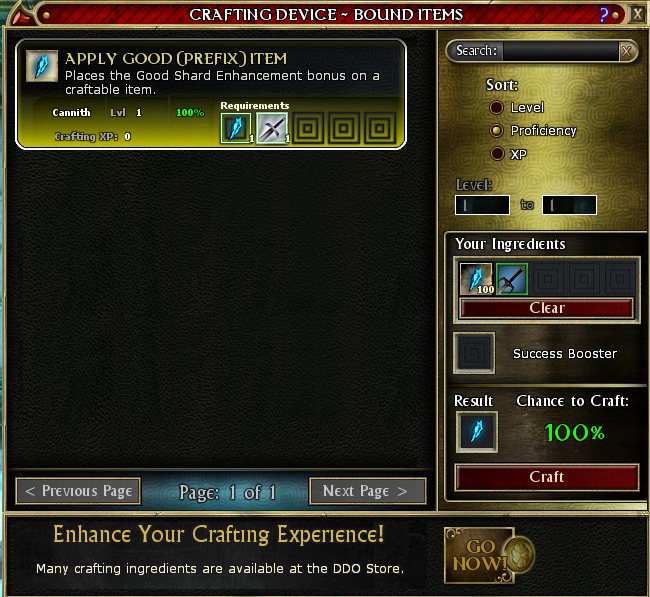
Apply the shard(s).
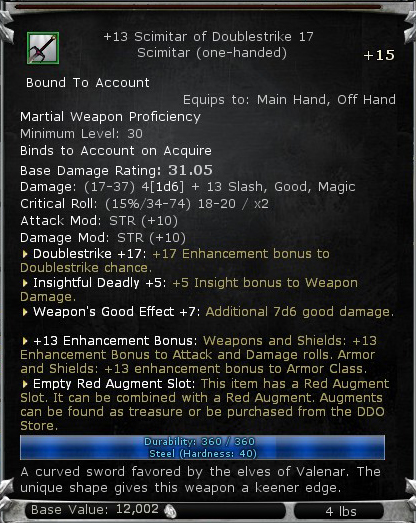
That's it! That's enough to get you started. If you'd like to get even more information about how the system works, read on...
Schools and XP:
Crafting Difficulty Level:
- Minimum Level shards will have a crafting difficulty of their level x 10, except for Minimum Level 1, which has a crafting difficulty of level 1. Unbound Minimum Level shards have a difficulty of their level x 10 + 50.
- Scaling Effect shards like Strength and Spell Focus have a crafting difficulty level based on the group they are in:
- There are three groups of scaling effect shards. Group 1 has a minimum crafting level of 1, Group 2 has a minimum crafting level of 50, and Group 3 has a minimum crafting level of 100.
- Non-Scaling effects like True Seeing and Fearsome fall independently along the Cannith Crafting difficulty level curve.
- Unbound versions of these shards add 150 to their crafting level, and Insightful versions of these shards add 175 to their crafting level.
Essences:
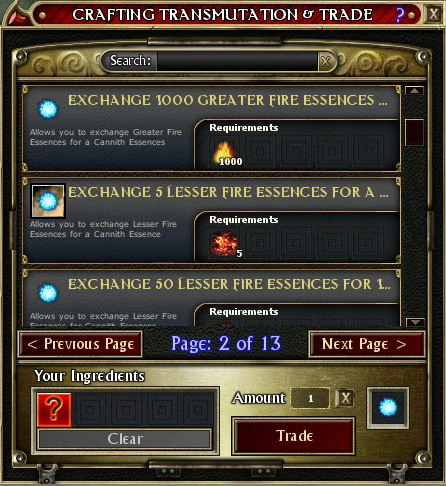
Collectibles:
Lore:
Arcane
Natural
Cultural
Other Things to Craft:
Ammunition:
Arrows and Bolts can be created with a combination of Cannith Essences and Siberys Dragonshard Fragments, and include Holy, Acid, Frost, Flaming, Shock, and Bane arrows with an enhancement bonus of +1 to +5.
Device Workstation:
The Device Workstation in House Cannith can be used to make traps, grenades, druid wolf companion collars and more! Cannith Essences are used in some grenades, traps, and collar recipes.
Rune Arms:
Some rune arms can be crafted on. The charge tier, spell, imbue, minimum level, and unique effects of rune arms stay after disjunction, while the other benefits of the rune arms are removed. Rune arms can have three effects crafted on them, just like random loot. Rune arms are treated like trinkets for the purposes of determining which shards can be crafted onto them.
Runestones:
Runestones can be crafted with a combination of Cannith Essences and Siberys Dragonshard Fragments, and can stun, petrify, or blind your enemies, among other things.
Trinkets:
Craftable Trinkets can be purchased in the DDO Store, found rarely in random treasure, and can be acquired through the Risia Ice Games event.
Other Notes:
- Where you can place specific shards is the same as on randomly-generated loot.
- Extra effect slots are not available on items under minimum level 10 (which is also true to randomly-generated loot.)
- Material types (Adamantine, Silver) and Augment Slots are retained on an item after disjunction.
- Marks of House Cannith add a 3rd extra effect slot to the item. These marks can be earned through House Cannith favor or purchased through the DDO Store.
- Marks of Yugoloth (purchased in Amrath) and Marks of the Silver Flame (Available after earning 400 Silver Flame Favor) are used to craft certain non-scaling effects.
- Bound Shards are Bound to Account, while Unbound Shards are Unbound.
- Old (pre-Update 29) randomly-generated loot can be Deconstructed, but not Dissolved. Only loot created under the new random generated loot system can be Dissolved into Cannith Essences.